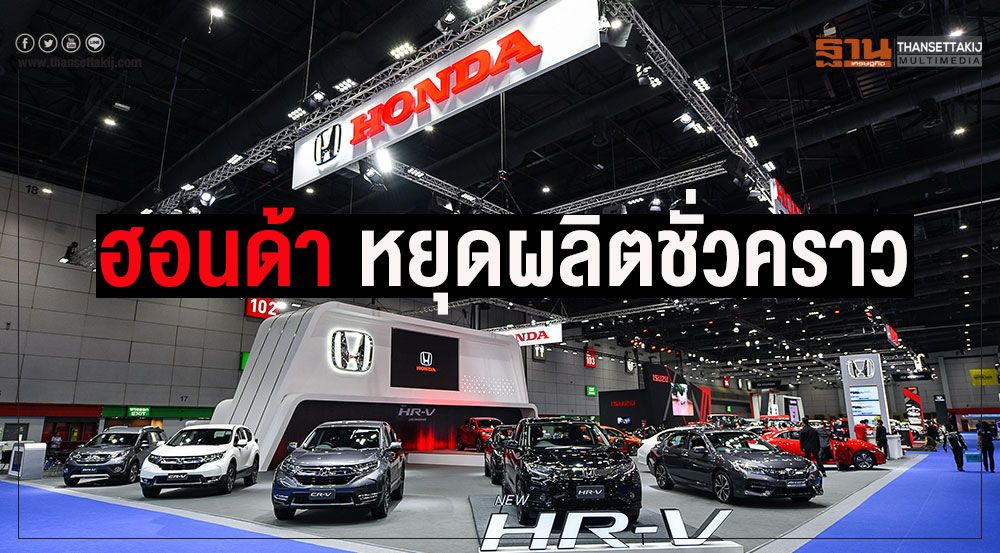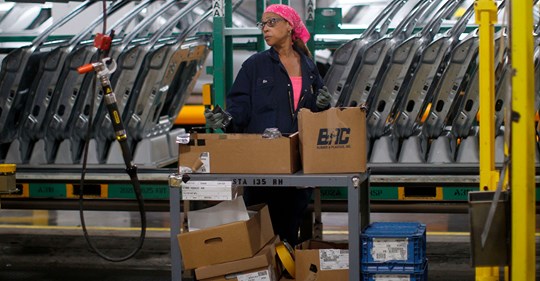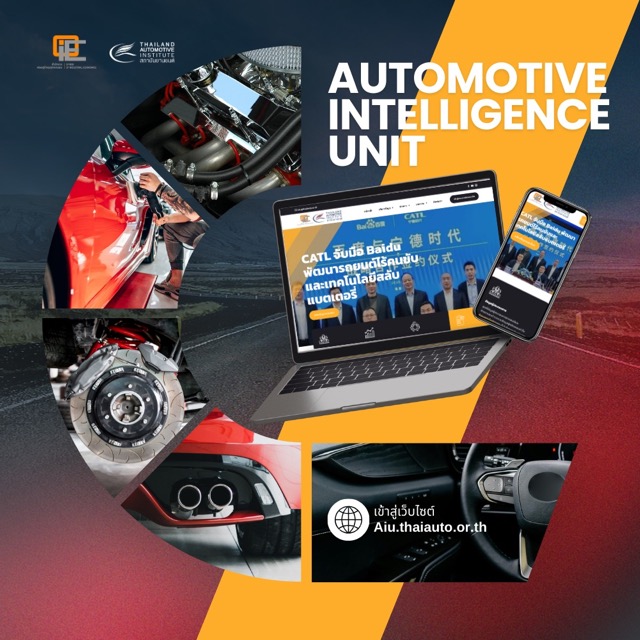- Silver
- สมาชิกระดับ Silver
- ฟรี
- สามารถเข้าถึงข้อมูลข่าวสารขั้นพื้นฐานได้
- ข้อมูลผู้ประกอบการต่างประเทศ
- ข้อมูลสถิติในประเทศและต่างประเทศ
- มาตรการทางการค้าระหว่างประเทศ
- กฎ ระเบียบ นโยบายในประเทศ
- เทคโนโลยี และงานวิจัย
- สมัครสมาชิก
นายสุรพงษ์ ไพสิฐพัฒนพงษ์ รองประธานและโฆษกกลุ่มอุตสาหกรรมยานยนต์ สภาอุตสาหกรรมแห่งประเทศไทย (ส.อ.ท.) เปิดเผย ยอดการผลิตรถยนต์ในเดือนกุมภาพันธ์ 2563
- รายละเอียด
- หมวด: ความเคลื่อนไหวในอุตสาหกรรม
- อ่าน: 1522 ครั้ง
ฮอนด้า ออโตโมบิล ประเทศไทย ประกาศหยุดเดินสายการผลิตรถยนต์ทั้ง 2 โรงงาน ที่ จ.พระนครศรีอยุธยา และ จ.ปราจีนบุรี ตั้งแต่ 27 มีนาคม - 30 เมษายนนี้
- รายละเอียด
- หมวด: ความเคลื่อนไหวในอุตสาหกรรม
- อ่าน: 2376 ครั้ง
Ford ประกาศจะร่วมมือกับ 3M และ GE Healthcare ในการเริ่มผลิตหน้ากากอนามัยและเครื่องช่วยหายใจ
- รายละเอียด
- หมวด: ความเคลื่อนไหวในอุตสาหกรรม
- อ่าน: 1760 ครั้ง




